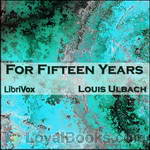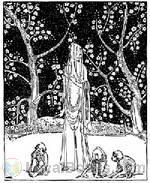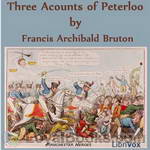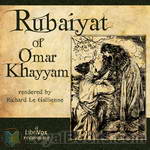|
Books Should Be Free Loyal Books Free Public Domain Audiobooks & eBook Downloads |
|
|
Books Should Be Free Loyal Books Free Public Domain Audiobooks & eBook Downloads |
|
Top Authors |
|---|
|
Book type:
Sort by:
|
By: Jean Ingelow (1820-1897) | |
|---|---|
 Mopsa the Fairy
Mopsa the Fairy
Jean Ingelow (1820 – 1897) was one of the more famous poets of the period, indeed many people suggested that she should succeed Alfred, Lord Tennyson as the first female Poet Laureate when he died in 1892. Mopsa the Fairy, written in 1869 is one of her more enduring stories. It is a delightful fantasy about a young boy who discovers a nest of young fairies and tells of their adventures together. | |
By: Olive Beaupre Miller [editor] (1883-1968) | |
|---|---|
 In the Nursery of My Bookhouse
In the Nursery of My Bookhouse
Full of delightful nursery rhymes, charming poems and engaging stories, folk and fairy tales, this is the first volume of the "My Bookhouse" series for little ones. Originally published in the 1920's as a six volume set, these books, edited by Olive Beaupre Miller, contained the best in children's literature, stories, poems and nursery rhymes. They progressed in difficulty through the different volumes - this first being intended for the youngest audience. | |
By: William John Locke (1863-1930) | |
|---|---|
 The Fortunate Youth
The Fortunate Youth
Paul is a poor boy who grew up in London, in the household of his mother and stepfather. His journey to greatness is the subject of our story. But his desired success comes at a very high price. | |
By: Harl Vincent (1893-1968) | |
|---|---|
 Astounding Stories 08, August 1930
Astounding Stories 08, August 1930
Issue eight of this seminal science-fiction magazine CONTENTS Murder Madness by Murray Leinster - the conclusion of this novel Earth the Maurader by Arthur J. Burks - Part 2 of a 3 Part novel as well as short Stories The Planet of Dread by R.F. Starxl, The Lord of Space by Victor Rousseau, The Second Satellite by Edmund Hamilton, Silver Dome by Harl Vincent and The Flying City by H. Thompson Rich | |
By: John William Norie (1772-1843) | |
|---|---|
 Piloting Directions for the Gulf of Finland
Piloting Directions for the Gulf of Finland
Norie's series of piloting and sailing directions was something of a staple in the chart-room of 19th century British (and other) merchant vessels. The description of landmarks and ports, as well as the rules and regulations provide another viewpoint to an earlier age. Please note that these piloting directions are rather completely out of date. They are given here for purposes of historical interest only, and should not be used for navigation purposes. | |
By: Ki no Tsurayuki (872-945) | |
|---|---|
 The Tosa Diary
The Tosa Diary
Ki no Tsurayuki was a Japanese waka poet of the Heian period. In 905, he was one of the poets ordered to compile the "Kokinshu - Collected Japanese Poems of Ancient and Modern Times". He is also one of the Thirty-six Poetry Immortals of Japan. The Tosa Diary, written in 935, is considered the major work of Tsurayuki. It is an account of his return to the capital Kyoto from Tosa province, where he had served as governor since 930. The journey is by boat, and Tsurayuki tells about his sea sickness and fear of pirates, his impressions of the coast, and the various offerings to placate the gods of the sea... | |
By: George F. Dillon (1836-1893) | |
|---|---|
 Song Celestial; Or, Bhagavad-Gîtâ
Song Celestial; Or, Bhagavad-Gîtâ
| |
By: Selina Gaye (1840-1914) | |
|---|---|
 The World's Lumber Room
The World's Lumber Room
If this book were written today, it would be called "The Story of the World's Rubbish".That may not sound a promising subject for a book, but we are taken on a journey all over the world (and beyond) to explain the many varieties of dust and refuse - animal, vegetable and mineral - how it is made both by man and by nature, what happens to it, and why we need it. We find that recycling is nothing new: man has been doing it for centuries, and nature has been doing it for billions of years. As every schoolboy knows, 'matter is neither created nor destroyed', so it stands to reason that every particle of it must be somewhere... | |
By: Susan Glaspell (1876-1948) | |
|---|---|
 Inheritors
Inheritors
Inheritors, (1921) by American dramatist Susan Glaspell concerns the legacy of an idealistic farmer who wills his highly coveted midwest farmland to the establishment of a college (Act I.) Forty years later, when his granddaughter stands up for the rights of Hindu nationals to protest at the college her grandfather founded, she jeopardizes funding for the college itself and sets herself against her own uncle, president of the institution's trustees (Acts II & III.) Ultimately, she defies her family's wishes, and as a consequence is bound for prison herself (Act IV... | |
By: E. M. Delafield (1890-1943) | |
|---|---|
 Consequences
Consequences
Set in late Victorian England, “Consequences” follows the life of Alexandra Clare, a girl born into an upper class Catholic London family. Raised from birth for the privileged life of a wife and mother, Alexandra never quite fits in with her or her family’s expectations and fails at seemingly everything she tries – school, the marriage market, family life. | |
By: Unknown | |
|---|---|
 365 Foreign Dishes
365 Foreign Dishes
Starters, main courses and desserts from around the world, one dish for every day of the year. From Turkey to China, from India to England, from Austria to Egypt, a wide variety of mouth-watering cuisines are represented. Each recipe is described in one short paragraph, making this book perfect for dipping into when you’re seeking inspiration on what to cook. | |
By: Louis Ulbach (1822-1889) | |
|---|---|
 For Fifteen Years
For Fifteen Years
For Fifteen Years by Louis Ulbach is the sequel to The Steel Hammer which tells the story of a poor upholsterer, Jean Mortier who is falsely accused of murder and the tragic chain of events that follow. For Fifteen Years begins in the aftermath of the conviction when the destitute wife and daughter of Jean Mortier are taken in by the family of a character witness from the trial, Gaston de Monterey. Circumstances and deceptions lead to distrust and tension among the two families for fifteen years but the daughter of Jean Mortier and the son of Gaston de Monterey have fallen in love... | |
By: William Butler Yeats (1865-1939) | |
|---|---|
 Crossways
Crossways
The first collection by Irish-born poet William Butler Yeats. Many decades before his mysterious and austere Modernist verse earned him a nobel prize, Yeats achieved renown as one of the last major poets in the High Romantic tradition. These poems showcase his Celtic imagination, his love for Irish folk-tales, and his commitment to the Romantic ideal of love. | |
By: Annie F. Johnston (1863-1931) | |
|---|---|
 The Little Colonel at Boarding-School
The Little Colonel at Boarding-School
Because of the illness of her grandfahter, Lloyd Sherman, the Little Colonel, finds herself being sent off to boarding school from her home in Lloydsboro Valley, Kentucky. Jolly times are mixed with lessons in this 7th book in the "Little Colonel" series for girls. | |
By: W. S. Gilbert (1836-1911) | |
|---|---|
 The Story of the H.M.S. Pinafore
The Story of the H.M.S. Pinafore
H.M.S. Pinafore; or, The Lass That Loved a Sailor, is a comic opera in two acts, with music by Arthur Sullivan and a libretto by W. S. Gilbert. It opened in London, England, on 25 May 1878 and ran for 571 performances, which was the second-longest run of any musical theatre piece up to that time. H.M.S. Pinafore was Gilbert and Sullivan's fourth operatic collaboration and their first international sensation. This is not that opera.It was adapted as a children's book by W. S. Gilbert entitled The Story of HMS Pinafore, or The Pinafore Picture Book, and includes some lovely illustrations by Alice B... | |
By: Pearl White (1889-1938) | |
|---|---|
 Just Me
Just Me
Perhaps the first memoir written by a film celebrity, Pearl White's Just Me gives a first-person account of the actress' rise to stardom. White guides us through her early childhood, her development as a performer, and finally to her breakout role in The Perils of Pauline--a role that made her the most popular "serial queen" of early cinema. Although romanticized and somewhat embellished, this book gives us a fascinating glimpse into the film industry's earliest years and the various myths of film stardom. | |
By: William Butler Yeats (1865-1939) | |
|---|---|
 In The Seven Woods
In The Seven Woods
In the Seven Woods (1904) is Yeats's first twentieth-century poetry collection. Its fourteen poems show him moving steadily away from the decisively Romantic diction of his earlier work. Here we hear a poetic voice that is at once more individual, colloquial and dramatic than previously. In addition, several poems sound a note of bitter lamentation over the marriage in 1903 of Maud Gonne, Yeats's great love and muse, to John MacBride. | |
By: William Wordsworth (1770-1850) | |
|---|---|
 The River Duddon: A Series of Sonnets
The River Duddon: A Series of Sonnets
Located in a part of Cumbria that was once part of Lancashire, the River Duddon rises in the high fells of the Lake District and flows for 25 miles through varied scenery before disappearing into the sands between Millom and Barrow-in-Furness. Wordsworth’s series of sonnets, inspired by his walks along the river, were written over a period of years, but are arranged so as to follow its downward course from the fells to the sea. Part One of this reading consists of the 33 sonnets and postscript that were first published as a series in 1820... | |
By: Francis J. Finn (1859-1928) | |
|---|---|
 His First and Last Appearance
His First and Last Appearance
The scene of the story is laid partly in Milwaukee, partly in New York. It describes the trials of the orphaned Lachance children. The boy hero is of a loving and lovable disposition and wins the hearts of all. The author has combined pathetic incidents with religious consolations, and gives zest to the whole by diffusing his genial humor throughout.From the author of Tom Playfair, Percy Wynn, But Thy Love and thy Grace, and many more. | |
By: Walter De la Mare (1873-1956) | |
|---|---|
 The Three Mulla-mulgars
The Three Mulla-mulgars
Three monkey brothers, Thumb, Thimble, and Nod, are Mulla-mulgars or royal monkeys. As she dies, their mother gives them the enchanted Wonderstone for protection, and tells them to follow their father. They embark on a journey of fantastical adventure to find their father, who left years earlier in search of the kingdom of his brother, the Prince of the Valleys of Tishnar, promising to return for them after he had found the way. | |
By: Rev. Thomas J. Hosty (1910-2004) | |
|---|---|
 Good Morning, Boys and Girls!
Good Morning, Boys and Girls!
Forty simple, delightful sermons for children. The stories cover a full school year, all Sundays and a few holydays in between. Under such engaging chapter titles, as Chasing Rainbows, Caterpillars, The Best Christmas Gift, and Breakfast of Champions, the book entertains while it instructs. Here Heaven takes on a new closeness as “God’s Home”; the Bible is a collection of “Letters from God”; while the devil is called “a Real Bogeyman.” Such important subjects as beauty of soul, gratitude, Sunday Mass, the foolishness of sin, the Rosary, and temptation are dealt with in a refreshing manner guaranteed to capture the interest of every child. | |
By: Gerard F. Scriven (?-1949) | |
|---|---|
 Wopsy: The Adventures of a Guardian Angel
Wopsy: The Adventures of a Guardian Angel
Wopsy is the story of a very young Guardian Angel, sent to watch over a pagan baby in Africa. Wopsy desperately wants his baby's soul to become white and clean in baptism, but what is a small guardian angel to do when there is no missionary priest in the village?The author was a member of the missionary order of priests known as the White Fathers (So named because of the white habits they wore). He wrote the "Wopsy" series of books in order to encourage missionary vocations in young children. | |
By: Father Benoit Valuy (1808-1869) | |
|---|---|
 Fraternal Charity
Fraternal Charity
This short treatise comes from a work by the Roman Catholic priest Father Valuy, S.J., and bears an imprimatur. It was written for members of religious orders; yet, as the translator notes, it may be of interest to others, for "love, the sunshine of existence, is wanted everywhere." The first five chapters cover the fundamentals of fraternal charity. Chapters 6 through 17 discuss twelve characteristics of fraternal charity. Chapters 18 and 19 show how God manifests the virtue of charity to us most perfectly... | |
By: Jewish Publication Society of America | |
|---|---|
 Exodus (JPSA)
Exodus (JPSA)
The second book of the Pentateuch - Exodus. Presented according to weekly parshah.Praised are You, Adonai, Our G-d, ruler of the Universe, who has made us holy with commandments and commanded us to engage in the study of Torah. (Introduction by Linette Geisel & traditional prayer. Parshat descriptions provided by Wikipedia) | |
By: Unknown | |
|---|---|
 National Nursery Book
National Nursery Book
"The Publishers offer in this little volume of well known and long loved stories to their young readers. The tales which have delighted the children of many generations will, they feel assured, be equally welcome in the nurseries of the present day, which, with the popularity and antiquity of the contents of the volume, justify them in styling it The National Nursery Book." Red Riding Hood, The Three Bears, Mother Hubbard, Cinderella and many other well known stories, poems, nursery rhymes and songs are included in this little book. Note that the Punch and Judy story does include a lot of gratuitous violence but then that is what Punch and Judy seem to be all about, eh? | |
By: Francis Archibald Bruton (1860-1929) | |
|---|---|
 Three Accounts of Peterloo
Three Accounts of Peterloo
A companion volume to F.A. Bruton's 'The Story of Peterloo', the full title of this short collection is 'Three Accounts of Peterloo by Eyewitnesses, Bishop Stanley, Lord Hylton, John Benjamin Smith with Bishop Stanley's Evidence at the Trial'. The three contemporary accounts, each with a short introduction by the editor, give different perspectives on the events of 16 August 1819, when a troop of Hussars accompanied by the local Yeomanry rode into a peaceful reform rally at St. Peter's Fields, Manchester, leaving 18 dead and more than 700 injured. | |
By: Unknown (427? BC - 347? BC) | |
|---|---|
 Parmenides
Parmenides
Parmenides (Ancient Greek: ΠΑΡΜΕΝΙΔΗΣ) recounts a meeting between Socrates, Zeno and Parmenides. Topics discussed include universals, plurality and the One. | |
By: James Thomson (1834-1882) | |
|---|---|
 Satires and Profanities
Satires and Profanities
"Believing as I do that James Thomson is, since Shelley, the most brilliant genius who has wielded a pen in the service of Freethought, I take a natural pride and pleasure in rescuing the following articles from burial in the great mausoleum of the periodical press. There will doubtless be a diversity of opinion as to their value. One critic, for instance, has called “The Story of a Famous Old Jewish Firm” a witless squib; but, on the other hand, the late Professor Clifford considered it a piece of exquisite mordant satire worthy of Swift... | |
By: Charles Knight (1791-1873) | |
|---|---|
 Mind Amongst the Spindles
Mind Amongst the Spindles
Lowell Massachusetts was founded in the 1820s as a planned manufacturing center for textiles and is located along the rapids of the Merrimack River, 25 miles northwest of Boston. By the 1850s Lowell had the largest industrial complex in the United States. The textile industry wove cotton produced in the South. In 1860, there were more cotton spindles in Lowell than in all eleven states combined that would form the Confederacy. Mind Amongst the Spindles is a selection of works from the Lowell Offering, a monthly periodical collecting contributed works of poetry and fiction by the female workers of the textile mills... | |
By: Omar Khayyám (1048-1131) | |
|---|---|
 Rubáiyát of Omar Khayyám (Le Gallienne)
Rubáiyát of Omar Khayyám (Le Gallienne)
Richard le Gallienne was an English poet and critic, who, although unfamiliar with the Persian language, had a profound interest in the Rubaiyat of Omar Khayyam. In 1897 he published a collection of 211 quatrains, which was based on earlier English translations, in particular the prose version by Justin Huntly McCarthy. A expanded edition, containing fifty additional quatrains was published in 1901, and this has been used for the present recording. | |
By: Thomas Newbigging (1833-1914) | |
|---|---|
 Lancashire Characters and Places
Lancashire Characters and Places
An eclectic collection of essays on late 19th-century Lancashire culture and life, including essays on the poets John Critchley Prince and Edwin Waugh. Thomas Newbigging was born in Glasgow and died in Knutsford, Chesshire, living in between in Rossendale, Pernambuco, and Manchester. A gas manager by profession and writer-historian by inclination, his two major works were the Handbook for Gas Engineers and Managers (1889) and the History of the Forest of Rossendale (1893). | |
By: George Eggleston and Dolores Marbourg | |
|---|---|
 Juggernaut: A Veiled Record
Juggernaut: A Veiled Record
Edgar Braine was consistently successful at all he set out to accomplish. He went through life with goals and worked diligently and with ethical purity in reaching those goals, from becoming editor of the local newspaper on up to his political aspirations. That was how his mother, in her waning years, had advised him to reach his goals, and Edgar was determined to honor her advice. There was one caveat in his mothers advice however, and it is for Edgar to determine exactly what she meant by it. Is success measured by the interactions between business, politics, and marriage? | |